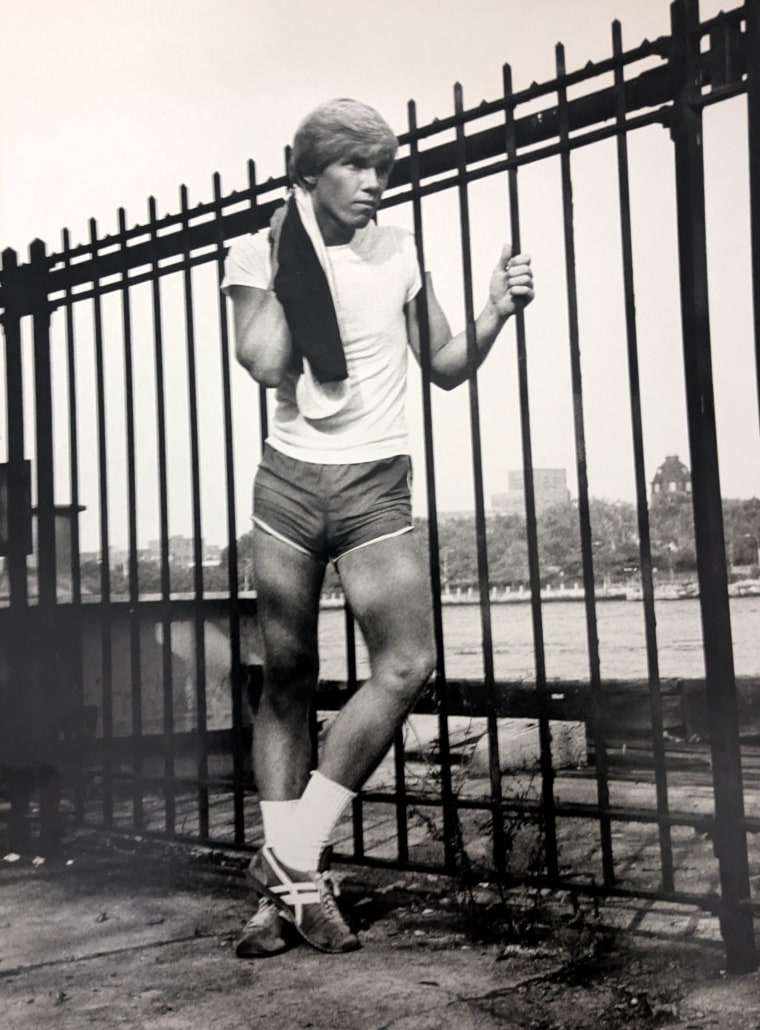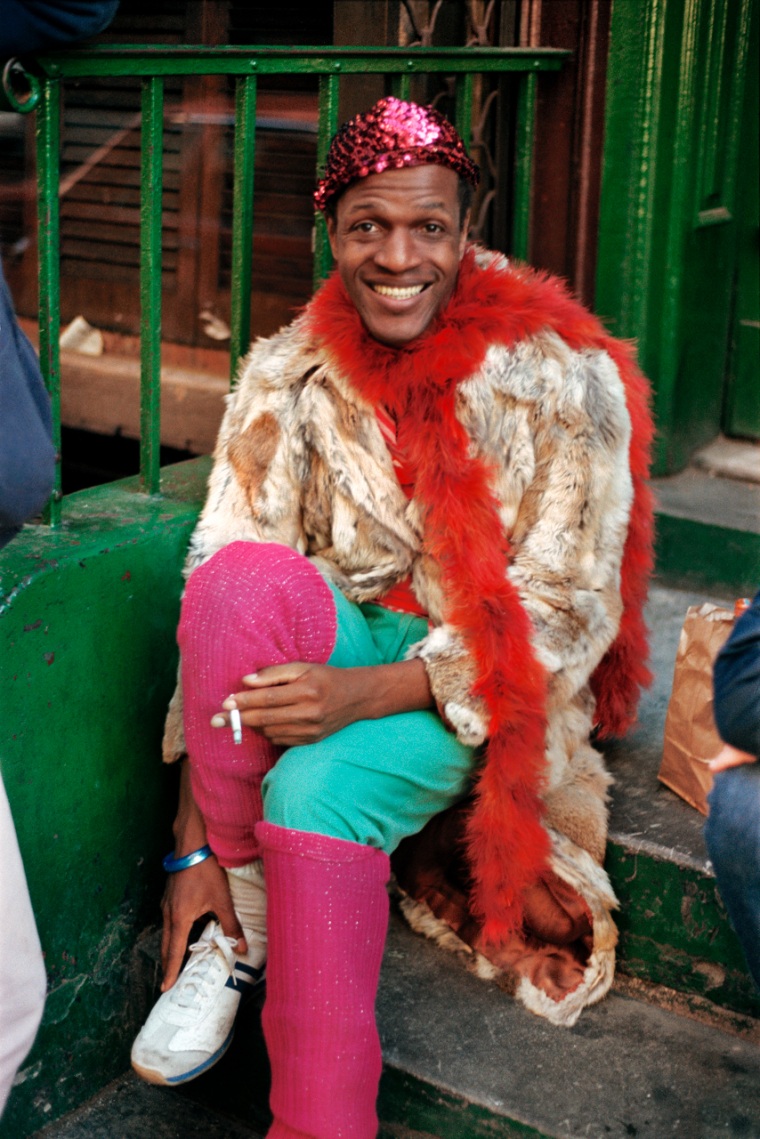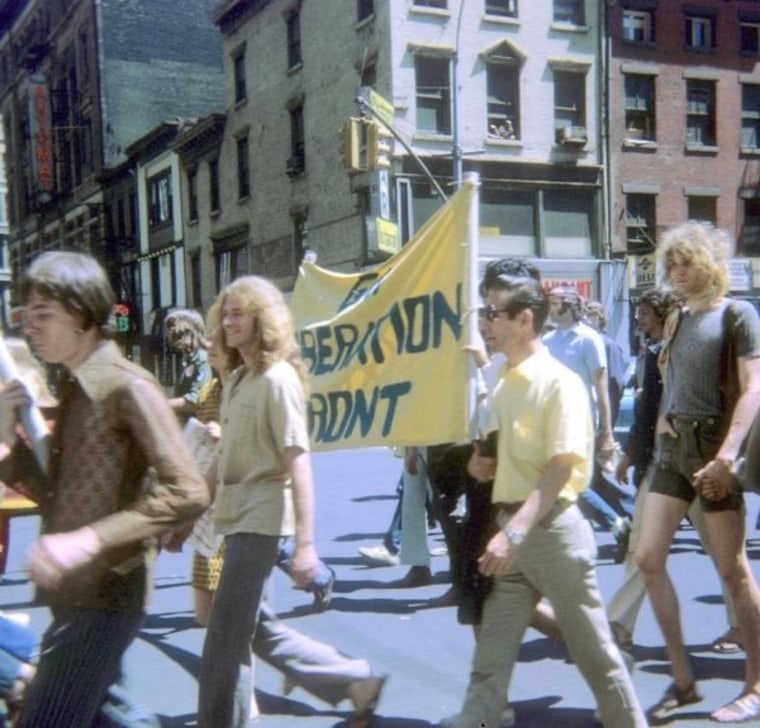For a vivid trip to the LGBTQ past, forget quantum physics or flux capacitors — a growing Facebook group, Gay New York 1970s and 80s, serves as a virtual online time machine, guiding its tens of thousands of followers back to an era many of them never knew while building a vibrant online community for the future.
Its popular posts, which routinely get thousands of likes, range from you-are-there recollections of legendary clubs like Studio 54 and The Saint to remembrances of first apartments, first loves and first losses in the AIDS epidemic. This wide array of gay New York stories preserve the past while also make it come alive with Fire Island home videos, vintage Pride photos, DJ playlists and even gay bar matchbook collections. But its 44,000-plus members don’t just reminisce about the old days; they converse with each other about the fun, formative decade after Stonewall as well as the challenges faced in the ‘80s during the AIDS crisis.

“I’m just blown away,” said Michael Hawke, 68, surprised by the popularity of the page that he created — not to mention the passion and participation of its members. “It’s amazing how much this group means to all these people.”
Born and raised in Richmond, Virginia, Hawke moved to New York City in 1976, when he was just 21 years old, to pursue work as a model and actor. He’s shared many of his own tales of the city with the group, like a Christopher Street encounter with Marsha P. Johnson, his stint as a stripper at The Show Palace Theater, and wild stories about the city’s burgeoning nightlife scene. But he also posts painful memories of heartbreak, addiction and all the loss he experienced, especially during the ‘80s.
“New York was beloved to me — it was my Oz,” said Hawke about how much his 17 years in New York still means to him. “That’s where I learned to grow up.”
The roots of his Facebook group go back to 2020, when Hawke was stuck in lockdown at his home in Richmond. He was sorting through old boxes in his basement filled with journals, black-and-white photos and memorabilia of his time in New York, including an invite to the opening of Studio 54. And that’s when all the memories flooded back.
“I was looking at these pieces of paper and modeling pictures when I’m 22 on the streets of the city,” he recalled. “And it just inspired me to want to start writing about it.”
Initially his goal was a memoir, until friends encouraged him to share his work online. So he created a private Facebook group called “Michael’s Story,” posting twice a week about his life in NYC’s nascent gay heyday. He said his experience sharing these stories was life-changing.
“Writing about that era helped me process a lot of the death and people I’d lost,” Hawke said. “I thought, ‘Let me see if this can help somebody else.’”

So in June 2023, he decided to create a new page with a broader mission, allowing members to post their own stories of LGBTQ life in New York City during the 1970s and ‘80s. At first, the page had a modest following of a few hundred members. But it provided a safe space for Hawke and his cohorts to share photos and memories of the magical ‘70s while also helping those who survived the ‘80s to reconnect with each other.
Then, in April of last year, the group exploded as thousands of new followers found it after articles on popular LGBTQ sites like Boy Culture and Kenneth in the 212. While the rule of social media is often “don’t read the comments,” Hawke said he was surprised to see they were positive and supportive. He also noticed many posts were sparking new conversations and creating connections that brought a real sense of community to this online space — something rare in these polarized times.
As the group grew exponentially, it began to draw lots of younger followers too, many of whom did not live in New York during the ‘70s and ‘80s — in fact, some weren’t even born yet. Despite that, they were welcomed warmly into the community, their curiosity sparking new stories as they engaged with other members across the generation gap.
Paul Boudreaux, 38, who lives in Brooklyn and is fascinated by New York’s LGBTQ past, started following the group on a friend’s suggestion. When he shared a photo of his Eartha Kitt concert poster from the ‘80s, he got more than he expected.
“All these people started commenting, saying they were there and she did these songs and what the mood was like,” he said, adding that the responses made him feel like he was there. “People really loved sharing their memories about these things they were there for — they were just so nice and helpful.”
Some of the most popular and powerful posts have been from members seeking information about family members lost to AIDS. Noel Arce, 37, was adopted by a gay NYC couple in the 1980s who both died of AIDS when he was 7. He posted a family photo last summer and the response was overwhelming: over 1,000 likes and more than 100 comments. He even connected with a man who worked with one of his dads and sent him a photo of a 3-year-old Arce and his father. But even more meaningful were all the supportive comments from the group.
“They were saying, you know, ‘Thank you for sharing. That’s very brave of you,’” said Arce, who believes his post served a larger purpose too. “I think the more I share it, it just keeps my dads’ story alive. I think it informs people about the realities of what was happening [with AIDS] back then.”
Another member, Anne Humbach, 64, posted a picture of her biological dad, whom she never knew and died of AIDS in 1984. She was hoping to find anyone acquainted with him to learn more details about his life in the city. Though she didn’t discover any new info, she felt she gained something even greater from all the supportive interactions with other members.
“It’s like getting hugs from all of these wonderful strangers who genuinely care. They’re just so kind,” she said, adding that she now tries to give those virtual hugs back. “I’ll post either comments or hugs to people I don’t know. It’s a connection you don’t find in too many places.”
As for Hawke, the site has become not only a place of healing, connection and community, but also an unexpected vocation. He spends multiple hours a day managing and editing all the posts to make sure members stay on point and conversations stay friendly. He’s also working on proposals for a book and a documentary about the group’s impact.
He chalks up Gay New York 1970s and ‘80s’ success to the principles he learned in Alcoholic Anonymous, since getting sober in 1988; mainly, that the group does not discuss outside issues (like current politics) and that it’s guided by a sense of service and giving back to the community. But what surprised him most about the group is how much young people have embraced it. Not only are they followers but actively engaging with other members and learning from them. He thinks that’s because Gen Z yearns for a simpler past.

“Everybody now has to relate through technology,” said Hawke, noting how young people are consumed by their phones. “But this was a time when you really had to connect to people. You had to get dressed up to look pretty and go to a bar to meet someone. ”
When Hawke was a young man, he thought he’d be remembered for his acting work, he said. But lately he’s changed his mind about what he hopes his life’s work will be. Now it’s simply his life — telling his tales of this remarkable time and inspiring others from his generation to share theirs so that no one forgets this era of LGBTQ history.
“This is what I would like to be remembered for,” he said referring to his group. “It’s pulled people together and brought an element of something unexpected to all these people’s lives.”





